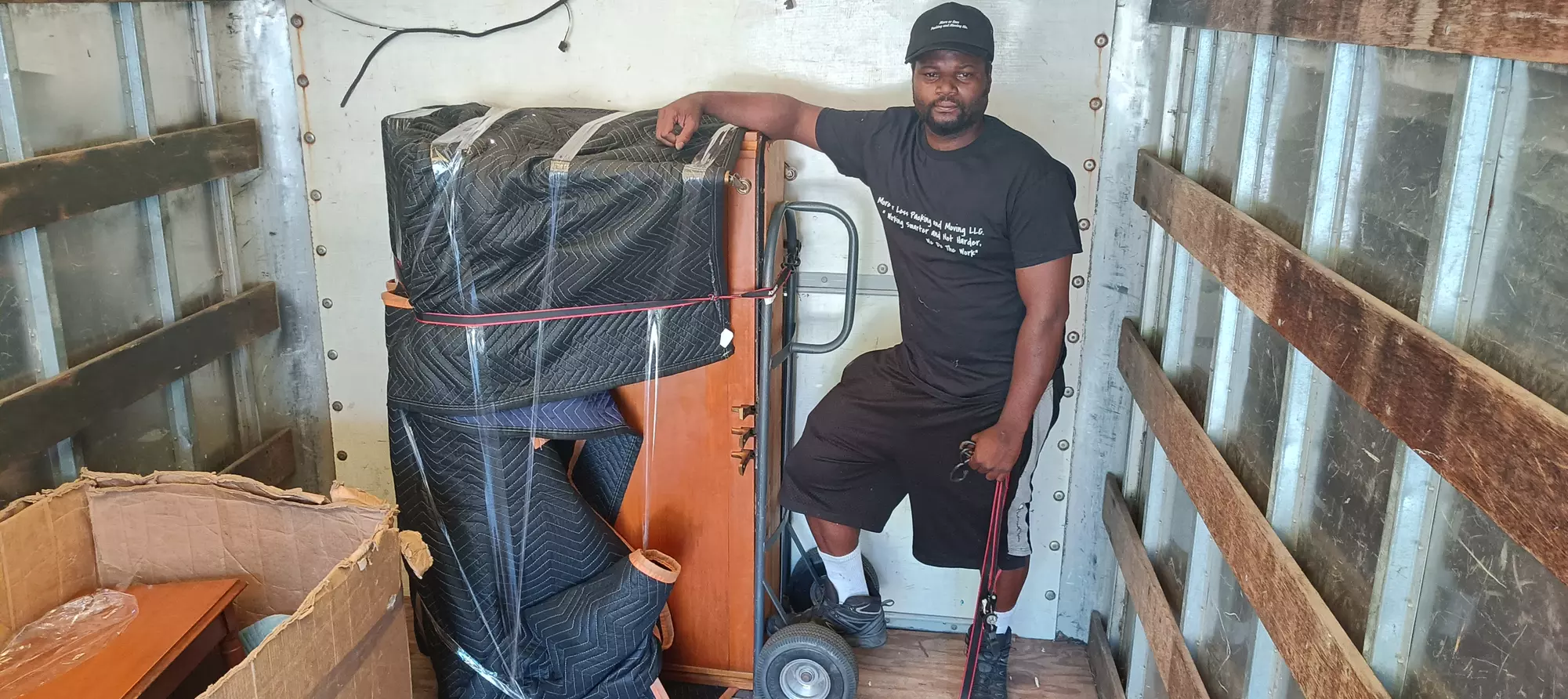Recognizing the Inclusions of moving and Freight Forwarding in the World of Worldwide and residential Shipping
Guiding via the complexities of moving and Freight forwarding can be tough. Both processes include distinctive procedures and needs that are essential for effective transport. Comprehending the distinctions in logistics, paperwork, and threat management is necessary for individuals and companies alike. This knowledge can greatly impact the efficiency and safety and security of shipments. Numerous are uninformed of the certain parts that affect the total experience and outcomes. What elements should one think about to guarantee a smooth changeover?
The Fundamentals of moving and Freight Forwarding
moving and Freight forwarding are basic components of the global logistics industry. They help with the transfer of items and personal items throughout residential and global boundaries. moving primarily entails the moving of people or households, including commercial and property requirements. It commonly consists of packaging, filling, transferring, and unboxing products at the destination. On the other hand, Freight forwarding is concentrated on the shipment of goods, usually in bulk, using numerous transportation modes, such as land.freight, sea, or air forwarders work as middlemans, collaborating logistics to ensure timely delivery while navigating via complex policies and custom-mades treatments. Both processes call for careful planning, organization, and interaction to ensure efficiency and minimize disruptions. Understanding these fundamentals is vital for anyone associated with logistics, as they lay the groundwork for more sophisticated facets of shipping and transportation management.
Key Components of Freight Forwarding Providers
Freight forwarding solutions encompass a number of crucial elements that assure smooth transportation of goods. Trick responsibilities of Freight forwarders include taking care of logistics, working with shipments, and managing custom-mades clearance. In addition, understanding crucial shipping paperwork is crucial for compliance and efficient motion of cargo.
Freight Forwarder Responsibilities
A reputable Freight forwarder plays a necessary role in coordinating the transportation of goods, guaranteeing that shipments are taken care of effectively and in conformity with policies. Their duties incorporate various key jobs, including selecting perfect transportation courses, discussing Freight rates, and handling logistics. They function as intermediaries between carriers and providers, guaranteeing that cargo is appropriately packaged and classified for secure transportation. Additionally, Freight forwarders track deliveries, providing updates to clients about the status and expected distribution times. They likewise analyze and manage dangers associated with transport, suggesting insurance policy options as needed. By assisting in communication and documents, Freight forwarders improve the shipping procedure, decreasing possible delays and improving overall supply chain effectiveness.
Shipping Documentation Basics

Understanding Custom-mades Clearance and Paperwork
Exact documents is vital in the customizeds clearance process, as it ensures conformity with various regulations. A summary of customizeds guidelines highlights the intricacies faced by shippers and Freight forwarders. Common clearance difficulties can considerably affect shipment timelines and prices, making understanding this element essential for reliable logistics.
Significance of Accurate Documents
Steering via the complexities of global shipping needs an eager understanding of custom-mades clearance and the important role of documentation. Precise paperwork is necessary for making certain that deliveries abide by laws and reach their locations without delays. Correctly prepared documents, including bills of lading, business billings, and packing listings, facilitate smooth interactions with customs authorities. Errors can bring about delivery hold-ups, penalties, or perhaps confiscation of goods. Detailed documentation aids in tracking shipments and resolving disputes. Businesses engaged in moving and Freight forwarding should prioritize precise paperwork methods to browse the detailed landscape of international delivery effectively. This diligence not just enhances operations but likewise boosts customer satisfaction by ensuring prompt shipment.
Custom-mades Regulations Summary
Guiding personalizeds regulations is a crucial facet of global trade that directly influences the success of moving and Freight forwarding operations. Effective customs clearance calls for an understanding of different policies, including tolls, duties, and import/export limitations. Exact documents is important, as it ensures conformity with lawful requirements and helps with the effective motion of items across borders. Trick documents frequently include industrial invoices, packaging lists, and bills of lading, which offer in-depth information concerning the delivery. In addition, customs brokers play a critical function in steering intricate guidelines, acting as middlemans in between custom-mades and carriers authorities. By maintaining thorough understanding of personalizeds processes, services can considerably decrease hold-ups and decrease costs associated with international delivery.
Typical Clearance Difficulties
Various challenges can arise throughout the customizeds clearance process, frequently making complex the activity of products throughout boundaries. One substantial problem is insufficient documents, which can cause delays and fines. Importers and merchants must ensure all required documents, such as invoices, packaging lists, and certifications of origin, is complete and precise. Furthermore, disparities in assessment can trigger examination from personalizeds authorities, leading to added responsibilities or inspections. Language obstacles may likewise present obstacles, as miscommunication can result in misconceptions concerning regulations. Adjustments in personalizeds policies can develop complication, requiring consistent alertness by carriers. Eventually, getting rid of these clearance challenges requires extensive preparation and a clear understanding of custom-mades requirements to help with smooth international deals.
Product Packaging and Classifying Requirements
Although usually overlooked, packaging and labeling demands play a vital role in the shipping process, making certain that goods are shielded and easily identifiable throughout their journey. Proper product packaging safeguards items from damages throughout transit, while additionally assisting in efficient handling and storage space. Making use of proper products, such as bubble cover, foam, or tough boxes, can protect against damage and loss.Labeling is similarly essential. Exact and clear tags communicate important information, including visit their website the destination, dealing with instructions, and materials. Tags must abide by laws details to domestic and global shipping, which might include dangerous products recognition or personalizeds declarations.Moreover, standard labeling practices simplify the monitoring procedure and boost overall logistics effectiveness. By adhering to product packaging and labeling demands, companies lessen the threat of hold-ups, damage, or misdelivery. Inevitably, these practices Website add considerably to the success of moving and Freight forwarding operations, making certain a smooth delivery experience for all celebrations included
Tracking Shipments: Value and Approaches
Effective packaging and labeling set the foundation for successful delivery administration, yet tracking shipments is just as crucial in the shipping procedure. Delivery tracking provides real-time presence, which assists customers and companies keep an eye on the progress of their goods. This transparency improves client contentment, given that customers can remain notified concerning distribution timelines and any kind of prospective delays.Several techniques help with effective monitoring. Barcode scanning is a common technique, making use of unique identifiers to keep track of bundles throughout their trip. In addition, general practitioner modern technology enables accurate place tracking, enabling prompt updates and enhanced logistics monitoring. Lots of delivery companies now offer digital platforms and mobile applications that offer individuals with very easy accessibility to tracking information.The importance of shipment monitoring can not be overstated; it minimizes the danger of lost or damaged goods, enhances operational efficiency, and cultivates trust in between carriers and recipients. Integrating effective monitoring methods is essential for effective domestic and worldwide shipping procedures.
Insurance policy Options for Your Item
Securing insurance policy for goods in transit is a vital factor to consider for companies and people alike. Insurance coverage options differ based on the kind of shipment, worth of items, and particular risks included. Usual kinds include service provider obligation, which covers loss or damage while in transportation, and full-value insurance coverage, offering extensive insurance coverage for the overall value of the goods.Shippers might also think about marine insurance coverage for international deliveries, safeguarding versus risks related to sea transport. It is vital to assess the details demands of the shipment and examine the terms of any type of policy.Furthermore, understanding exclusions and constraints is vital to stay clear of prospective voids in insurance coverage. Carriers must involve with insurance coverage experts to explore tailored solutions that fit their unique situations. Ultimately, buying the appropriate insurance can reduce monetary risks and offer assurance throughout the shipping process.
Selecting the Right moving and Freight Forwarding Service
When choosing a moving and Freight forwarding service, it is vital for companies and individuals to meticulously review their certain requirements and concerns. Aspects such as the volume of items, location, and timeline play a significant duty in this decision-making process. Investigating numerous carriers is advisable; contrasting their services, pricing, and consumer testimonials can disclose beneficial insights.Additionally, it is necessary to take into account the experience and experience of the provider in dealing with particular kinds of cargo, specifically for global shipments that might include custom-mades clearance. Transparency in rates, including any kind of surprise fees, ought to likewise be scrutinized.Furthermore, reviewing the degree of consumer assistance provided is essential, as timely interaction can reduce problems during transit (shipping companies). Ultimately, confirming the availability of insurance options guarantees that products are safeguarded throughout the delivery process. By taking these actions, people and companies can make informed choices that line up with their logistics requirements
Regularly Asked Questions
What Types of Item Can Be Shipped Internationally?

Exactly How Do Delivery Prices Vary Between Different Providers?
Delivering costs vary greatly in between service providers because of aspects such as service speed, cargo type, range, and extra solutions used. Each copyright's pricing version reflects these variables, affecting total shipping costs for clients.
Can I Ship Hazardous Materials or Perishables?
Shipping dangerous products and perishables is subject to stringent laws. Service providers frequently need particular product packaging, labeling, and documentation. Carriers need to ensure compliance with worldwide and regional laws to avoid penalties and ensure risk-free transport.
What Should I Do if My Delivery Is Delayed?
When confronted with a shipment delay, one should initially get in touch with the copyright for updates. After that, evaluate go to the website any kind of notifications received, analyze alternative services, and keep all events notified about the situation to lessen disturbances.
Are There Weight Purview for Delivery Containers?
Weight limitations for delivery containers differ depending upon factors like container dimension and delivery regulations. Normally, typical containers have a maximum gross weight of around 30,000 to 32,000 kilos to assure safe transport and handling. In contrast, Freight forwarding is concentrated on the delivery of products, commonly in bulk, utilizing different transportation modes, such as land.freight, air, or sea forwarders act as middlemans, collaborating logistics to assure prompt delivery while navigating with complex policies and personalizeds procedures. Key responsibilities of Freight forwarders include taking care of logistics, collaborating shipments, and taking care of customizeds clearance. A reputable Freight forwarder plays an essential role in working with the transport of items, guaranteeing that shipments are managed effectively and in conformity with guidelines. Efficient product packaging and labeling established the foundation for successful shipment management, however tracking deliveries is just as essential in the delivery process. Numerous delivery business now supply electronic platforms and mobile applications that provide customers with simple access to tracking information.The relevance of shipment monitoring can not be overemphasized; it minimizes the risk of shed or harmed goods, boosts operational efficiency, and cultivates depend on between carriers and recipients.